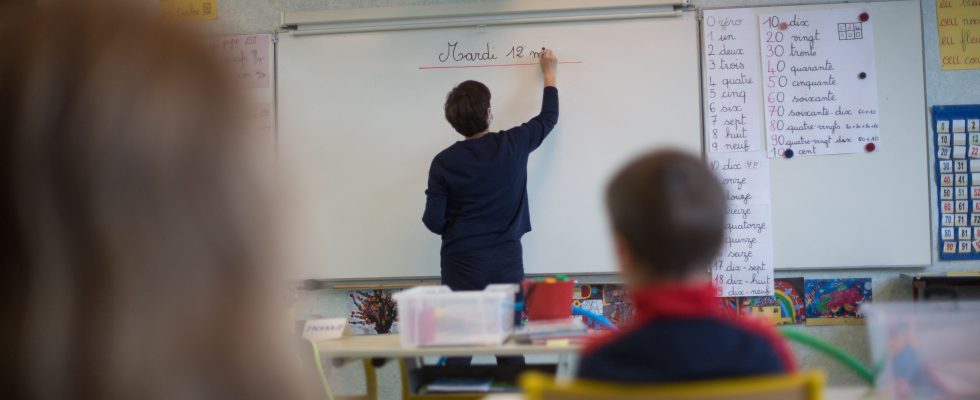The OECD published its Pisa 2022 international study on Tuesday, pointing out in France a “historic” drop in the level of students in mathematics, a few hours before Gabriel Attal unveiled “strong measures” to raise the level of students, particularly in middle school. .
“With a drop of 21 points in France, this is a historic drop in the level of students in mathematics between 2018 and 2022, to be put in the context of an overall drop at the international level,” explains Eric Charbonnier, specialist in mathematics, to AFP. education at the OECD.
A drop of 21 points for France
The international ranking Pisa which sifts through reading comprehension, mathematical culture and scientific culture. For its 2022 edition, it focuses specifically on mathematics, as it did in 2012 and 2003.
“In mathematics, the sharp drop observed in France between 2018 and 2022 is the largest observed since the first Pisa study” in 2000, notes the OECD in its Pisa study, which specifies that this drop is “21 points, compared to a drop of 15 points for the OECD average.
“France is not experiencing its first drop in level in maths,” says Eric Charbonnier. In previous editions, “a decline had already been observed between 2003 and 2006 then the results remained stable between 2006 and 2018”, he specifies.
“A level of anxiety at the OECD average”
On the other hand, French students, who were among the most anxious in OECD countries regarding mathematics until now, now have “a level of anxiety at the level of the OECD average”, a change which is explained “by a drop in the level of anxiety of students in France between 2012 and 2022 combined at the same time with an increase in the level of anxiety in many OECD countries.
These poor results in 2022 “are to be seen in the particular context of the global Covid-19 pandemic but Covid is not the only explanation”, according to Eric Charbonnier. “The problem of attractiveness (of the teaching profession) also has an impact on results, like the Covid crisis,” he assures.
“Shock of knowledge”
According to the OECD, in 2022, “67% of students were educated in schools where the principal had declared that the ability to provide education was hampered by a lack of teaching staff. In 2018, there were only 17 %”.
“We also note, compared to 2018, that there is less parental involvement in monitoring their child’s progress, which may also have played a role in the decline in performance,” adds Irène Hu, also a specialist in education at the OECD.
France is also experiencing a sharp decline in the level of its students in reading comprehension, the trend of which has been downward since 2012 in the country. “Student performance fell by 19 points in reading comprehension, compared to 10 points for the OECD average” compared to 2019, explains the OECD. In science, the results remained rather stable, “without us being able to explain why”, concedes Eric Charbonnier.
Singapore in the lead
As for the previous edition, where four Chinese metropolises and provinces (Beijing, Shanghai, Jiangsu, Zhejiang, which were unable to participate this time) came first, several Asian countries are among the best students. Singapore is well ahead in mathematics, science and reading, as in 2016.
It is followed by Macau, Taiwan, Hong Kong, Japan and South Korea in maths. “We continue to have Asian countries, and particularly in mathematics, which really dominate the first performances,” explains Eric Charbonnier, education specialist at the OECD.
